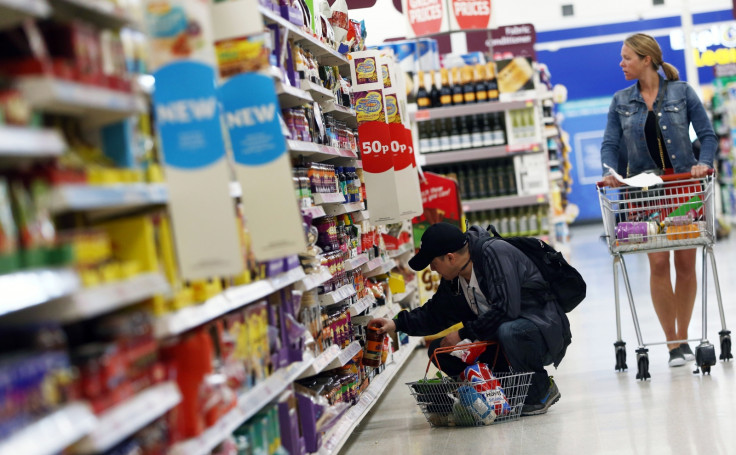UK consumer confidence tumbles to lowest level since Brexit vote
YouGov/CEBR confidence index falls from 109.3 in October to 106.6 in November, recording first decline in five months.

Confidence among British households has plunged to the lowest level since immediately after the Brexit referendum last year, a new poll released on Friday (24 November) has shown.
An index of consumer confidence compiled by YouGov and the Centre for Economics and Business Research (CEBR) tumbled from 109.3 in October to 106.6 in November, recording its first decline since June of this year.
While the index remained above the 100 mark at which consumers are considered to be feeling confident about the economy, the figure was the joint-worst on record since the one registered in the aftermath of the Brexit vote in 2016.
All eight of the index's subcategories recorded a decline and the a gauge of household finances over the past month slumped to the lowest level since January 2014.
CEBR economist Christian Jaccarini suggested the sharp decline in consumer confidence was attributable to an ongoing slowdown in the housing market and to the Bank of England's decision to raise interest rates.
The BoE lifted its benchmark rate for the first time in a decade earlier this month, raising it from the historic low of 0.25% to 0.5%, the level where interest rates had been from 2007 until August 2016, when the Bank lowered its benchmark rate in the wake of the EU referendum.
"With these economic headwinds set to persist, and the Office for Budget Responsibility (OBR) forecasting weaker growth, households are understandably worried," he said.
On Wednesday (22 November), the OBR downgraded its forecast for economic growth. The OBR now expects Britain's economy to grow by 1.5% in 2017, revised down from the 2% forecast made in March.
Economic growth has also been cut to 1.4% in 2018, 1.3% in both 2019 and 2020, but growth would subsequently pick up back to 1.5%, and finally 1.6% in 2022.
Meanwhile, a report from the Resolution Foundation released on Thursday (23 November) warned Britain's economy in 2022 will be £42bn smaller than originally thought, adding Britain was on track to record its longest decline in living standards in six decades.
Real disposable incomes are set to fall for 19 consecutive quarters, the most prolonged decline since records began over 60 years ago, with tax and benefits policies set to pile even more pressure on living standards and exacerbate inequality.
According to the think tank, the policies would result in an annual average loss of £715 for the poorest households, while the richest third would receive approximately £185.






















